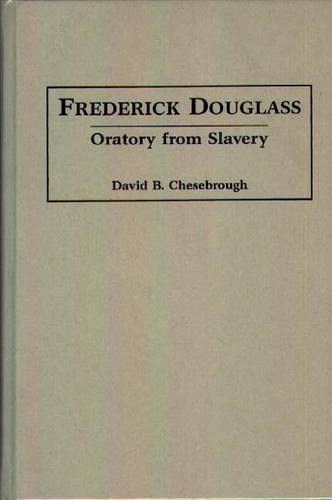
Frederick Douglass: Oratory from Slavery
(Hardback)
Publishing Details
Frederick Douglass: Oratory from Slavery
By (Author) David B. Chesebrough
Bloomsbury Publishing PLC
Greenwood Press
26th January 1998
United States
Classifications
Tertiary Education
Non Fiction
Literary studies: c 1800 to c 1900
Ethnic studies / Ethnicity
Speaking in public: advice and guides
Slavery, enslaved persons and abolition of slavery
History of the Americas
815.3
Physical Properties
Hardback
200
Description
Frederick Douglass, once a slave, was one of the great 19th century American orators and the most important African American voice of his era. This book traces the development of his rhetorical skills, discusses the effect of his oratory on his contemporaries, and analyzes the specific oratorical techniques he employed. The first part is a biographical sketch of Douglass's life, dealing with his years of slavery (1818-1837), his prewar years of freedom (1837-1861), the Civil War (1861-1865), and postwar years (1865-1895). Chesebrough emphasizes the centrality of oratory to Douglass's life, even during the years in slavery. The second part looks at his oratorical techniques and concludes with three speeches from different periods. Students and scholars of communications, U.S. history, slavery, the Civil War and Reconstruction, and African American studies will be interested in this book.
Author Bio
DAVID B. CHESEBROUGH is Assistant Chair, Graduate Faculty, Department of History at Illinois State University. He is the author of three previous books: God Ordained This War: Sermons on the Sectional Crisis, 1830-1865 (1991), No Sorrow Like Our Sorrow: Northern Protestant Sermons and the Assassination of Lincoln (1994), and Clergy Dissent in the Old South, 1830-1865 (1996).
